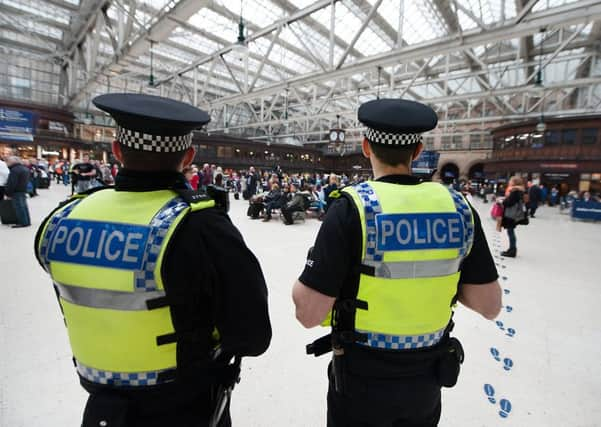Kath Murray: SNP decision to delay police merger is right one


With little sign of resolution, these challenges have now prompted Justice Secretary Michael Matheson to delay integration.
Set against this complex and contested backdrop, the BTP Leaving Home project has taken a different track and investigates the impact of integration on BTP Scotland police officers and staff.
Advertisement
Hide AdAdvertisement
Hide AdUndertaken by researchers at the universities of Edinburgh and the West of Scotland, this independent study digs beneath the practical challenges, and looks instead at the experiences and views of those at the frontline of the process.
Early findings from our study are based on a detailed online questionnaire completed by two-thirds of BTP Scotland officers and staff.
Tapping into themes around organisational identity and attachment to the railway policing community, the findings reveal the difficult and insecure position that many BTP Scotland officers and staff have found themselves in.
For some, the findings also capture a profound sense of loss and anger.
On the one hand, most officers and staff take pride in working for the BTP.
As one respondent neatly put it: “We all choose to join BTP for a reason – we are all proud to serve the rail network.”
By the same token, respondents were also generally positive about their current roles and working relationships. On the other hand, it was felt that such bonds would be lost as a result of integration. As one respondent stated: “Everyone is very supportive and we all help one another out. I just know that that feeling – almost like being part of an extensive family – will be lost.”
Weighing up the advantages and disadvantages, the findings suggest that integration might benefit Scottish policing; however, any such gains are likely to be secured at a significant personal and professional cost to many BTP Scotland officers and staff. Respondents also identified the wider cost to railway policing and cautioned that integration could precipitate the further break-up of the BTP, signalling “the end of an era”.
Advertisement
Hide AdAdvertisement
Hide AdTaking an overview, we would argue that this deep-seated sense of unfairness and loss helps to explain the strength of feeling articulated in the study. For many BTP officers and staff, the impact of integration is huge. That most respondents do not support the merger, while many have already given serious consideration to leaving railway policing, provides a robust measure of this.
The importance of these findings is underscored by the simple precept that successful organisational change requires consensus and trust. Seamless and safe integration will need buy-in from skilled and experienced BTP officers and staff – which is yet to be secured.
The decision to delay integration is both sensible and welcome. Looking ahead, the findings show the need for improved communication, a much better understanding of how the merger has affected people’s professional and personal lives, and relatedly, how BTP officers and staff view their current roles and working relationships. With time, and a lot of money, the practical obstacles may be resolved. Building the trust and confidence of officers and staff, however, looks set to be the greater challenge.
Dr Kath Murray is a researcher based at the University of Edinburgh.
